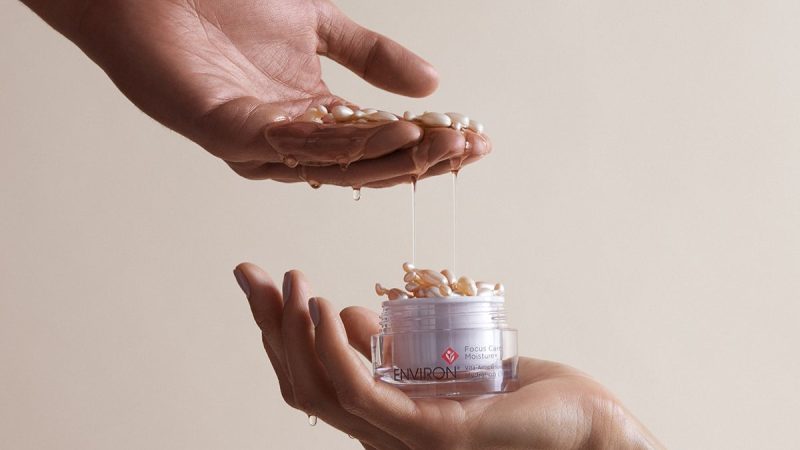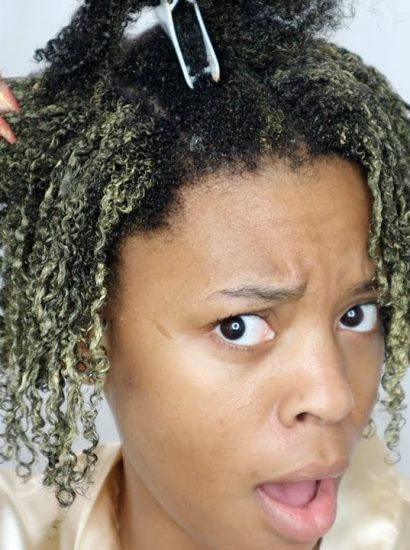In the realm of skincare, ingredients like retinol, hyaluronic acid, and vitamin C often steal the spotlight. But behind the scenes, Vitamin B5, also known as pantothenic acid or panthenol, quietly works wonders on your skin. This underrated yet powerful vitamin has proven benefits for hydration, healing, and maintaining a healthy, radiant complexion.
Whether you’re battling dryness, acne, or dullness, Vitamin B5 might be the secret weapon your skincare routine is missing. In this comprehensive guide, we’ll explore everything about Vitamin B5—from how it works to how to use it effectively.
What is Vitamin B5 (Pantothenic Acid)?
Vitamin B5 is a water-soluble vitamin that belongs to the B-complex group. In skincare, it typically appears in the form of panthenol, which is a provitamin that converts to pantothenic acid upon application to the skin.
Panthenol is widely used in moisturizers, serums, creams, and lotions because of its excellent ability to attract and retain moisture. It’s also known for its calming, anti-inflammatory, and wound-healing properties.
Pantothenic acid is essential not only for skin health but also for the proper functioning of the body’s metabolism. However, when applied topically, its benefits are particularly potent for skin repair and hydration.
The Science Behind Vitamin B5 for Skin
Vitamin B5 supports your skin’s health by boosting skin barrier function, enhancing cell regeneration, and improving moisture retention. It does this through:
- Humectant properties: Binds and retains water in the skin.
- Anti-inflammatory effects: Reduces redness and irritation.
- Stimulation of skin healing: Speeds up repair of wounds and acne.
- Support for lipid synthesis: Strengthens the skin barrier, preventing transepidermal water loss (TEWL).
Because it’s so gentle and non-irritating, Vitamin B5 is suitable for all skin types, including sensitive and acne-prone skin.
Top Benefits of Vitamin B5 for Skin
a. Deep Hydration
Vitamin B5 acts as a humectant, drawing moisture into the skin and locking it in. This makes it incredibly effective for dry, flaky, or dehydrated skin.
b. Skin Barrier Support
By enhancing the production of lipids in the skin, Vitamin B5 helps strengthen the epidermal barrier, shielding your skin from environmental stressors and pollutants.
c. Wound Healing & Repair
Pantothenic acid supports the regeneration of skin cells, accelerating the healing of cuts, abrasions, and acne lesions.
d. Acne and Oil Control
Research has shown that Vitamin B5 can help reduce acne severity by regulating sebum (oil) production and reducing inflammation, especially when taken as an oral supplement.
e. Anti-Aging Properties
Vitamin B5 improves skin elasticity and smoothness, helping to reduce the appearance of fine lines and wrinkles over time.
Who Should Use Vitamin B5?
Vitamin B5 is incredibly versatile and safe for nearly everyone, including:
- People with dry or sensitive skin
- Individuals struggling with acne or irritation
- Those looking for non-comedogenic hydration
- People with compromised skin barriers (from over-exfoliation or environmental damage)
It’s also pregnancy-safe, fragrance-free in most formulations, and well-tolerated by people who are sensitive to stronger actives like retinol or acids.
How to Use Vitamin B5 in Your Skincare Routine
Vitamin B5 can be incorporated into both your morning and evening skincare routines. Here’s how:
Step-by-Step Routine Integration
- Cleanser – Start with a gentle, pH-balanced cleanser.
- Toner (optional) – Prepares the skin and adds a hydration layer.
- Serum – Use a B5-rich serum (often combined with hyaluronic acid).
- Moisturizer – Lock in the hydration with a Vitamin B5 cream or lotion.
- Sunscreen – Always finish your AM routine with SPF 30 or higher.
Pro Tip
For intense repair, use a Vitamin B5 overnight mask or balm, especially after exfoliating or sun exposure.
Best Products with Vitamin B5
Here are some of the most effective and popular Vitamin B5 skincare products available:
a. La Roche-Posay Cicaplast Baume B5
A cult favorite that soothes and repairs irritated or compromised skin. Ideal for dryness, post-procedure skin, or flare-ups.
b. The Ordinary Amino Acids + B5
An affordable, lightweight serum combining amino acids with B5 for deep hydration and repair.
c. SkinCeuticals Hydrating B5 Gel
A high-end option that combines B5 with hyaluronic acid for superior moisture-binding.
d. CeraVe Daily Moisturizing Lotion
Contains panthenol and ceramides, offering lightweight but effective hydration for daily use.
e. First Aid Beauty Ultra Repair Cream
A rich, whipped cream that includes panthenol, colloidal oatmeal, and shea butter for soothing dry, itchy skin.
Common Myths About Vitamin B5
Myth 1: Vitamin B5 is only for dry skin.
Fact: While it’s amazing for hydration, Vitamin B5 also benefits oily, acne-prone, and sensitive skin types due to its anti-inflammatory and healing properties.
Myth 2: Panthenol and Vitamin B5 are different.
Fact: Panthenol is the provitamin of B5, which converts into pantothenic acid once it penetrates the skin.
Myth 3: Vitamin B5 clogs pores.
Fact: Vitamin B5 is non-comedogenic, meaning it won’t clog pores. It’s safe for acne-prone individuals.
Myth 4: You can’t combine B5 with other active ingredients.
Fact: B5 is extremely gentle and pairs well with vitamin C, niacinamide, hyaluronic acid, and peptides.
Conclusion
Vitamin B5 may not be the flashiest ingredient in your skincare lineup, but its benefits are truly impressive. From intense hydration and barrier repair to acne relief and anti-aging, B5 does it all—quietly but effectively.
Its compatibility with other ingredients and suitability for all skin types makes it a must-have in both basic and advanced skincare routines. Whether you’re dealing with dryness, irritation, or blemishes, Vitamin B5 is a reliable and scientifically supported solution to achieve smooth, resilient, and glowing skin.
If you’re looking to simplify your skincare or add a calming, healing component to your routine, Vitamin B5 is a fantastic place to start.
FAQs
1. Is Vitamin B5 good for acne?
Yes! Vitamin B5 helps reduce oil production and inflammation, making it effective for acne-prone skin. Both topical and oral B5 have shown acne-reducing benefits in clinical studies.
2. Can I use Vitamin B5 every day?
Absolutely. Vitamin B5 is gentle and safe for daily use, even twice a day, depending on the product.
3. What’s the difference between Vitamin B5 and B3 (niacinamide)?
Vitamin B5 focuses more on hydration and healing, while niacinamide (B3) is better for oil control, brightening, and anti-aging. They can be used together for enhanced results.
4. Does Vitamin B5 lighten skin?
Vitamin B5 does not bleach or lighten the skin but can even out skin tone and reduce redness and pigmentation through its anti-inflammatory properties.
5. Is B5 better in serum or cream form?
Both are effective. Serums are ideal for quick absorption and layering, while creams or balms offer more occlusive, long-lasting hydration—perfect for dry or damaged skin.
Also read: Azelaic Acid: Benefits, Uses & How It Works for Skin Care





